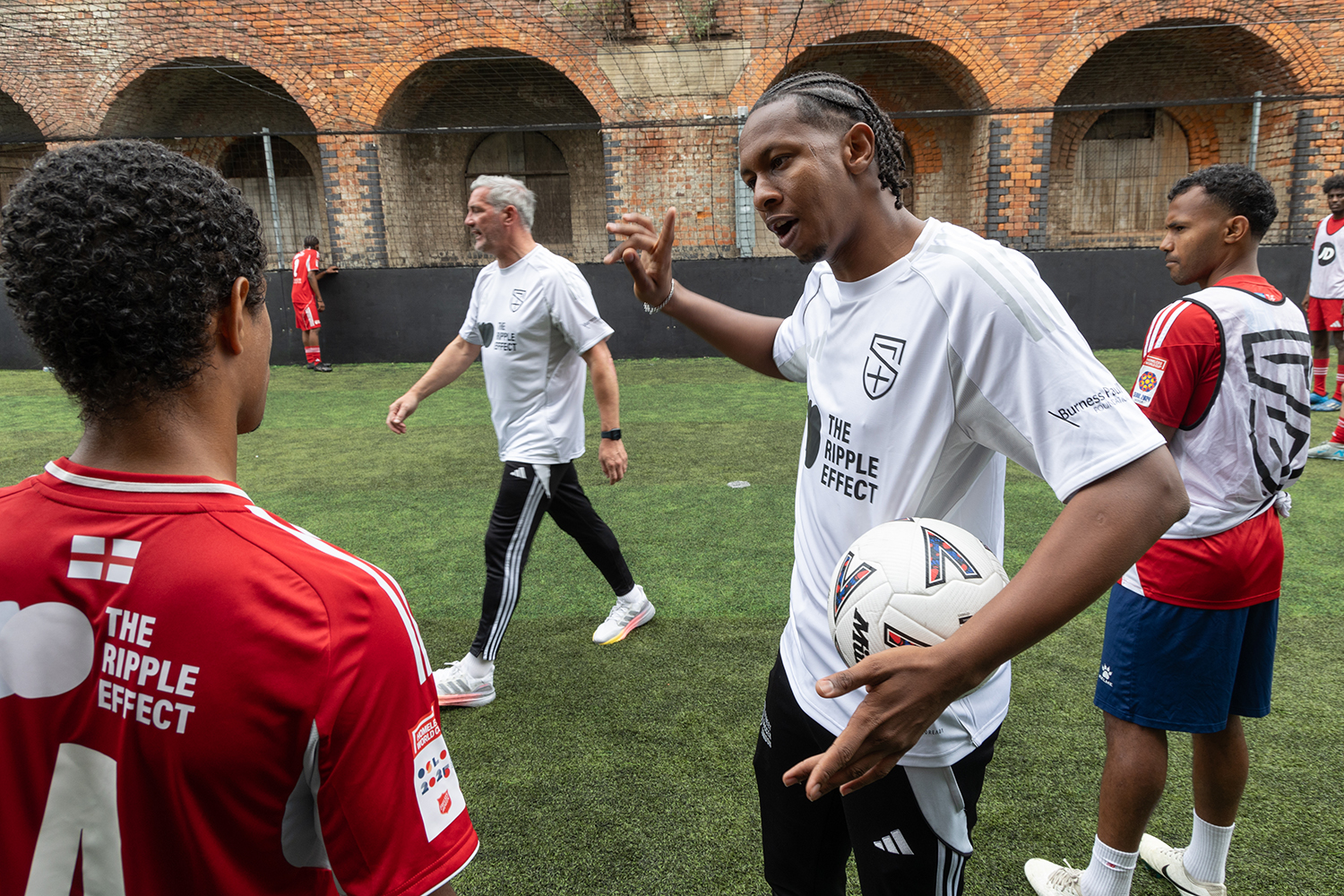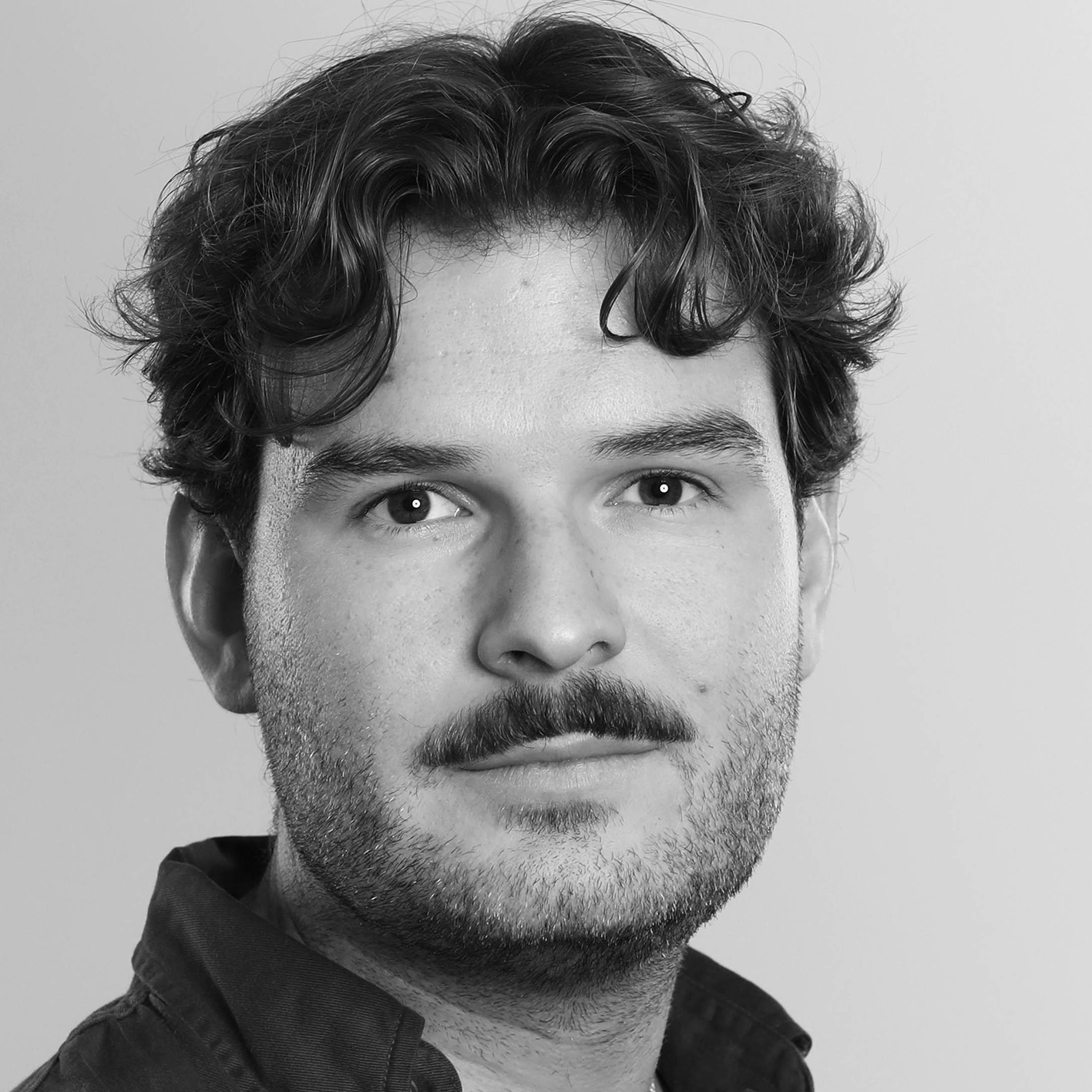It started with blue. His family all supported Al-Hilal – the Sudanese original, formed two years before Saudi Arabia – who play in this vibrant royal blue. At seven, it always feels like your favourite colour can determine your future. It turns out it can.
They took him to cafes and shisha bars first to watch Al-Hilal, then whatever football was on. Chelsea’s blue is slightly deeper than Al-Hilal’s, but he didn’t mind.
“I just loved the blue and the team was so good. It was just when José Mourinho had taken over. Then I fell in love with Frank Lampard,” he says. He was given a Lampard shirt, which became a second skin. That’s how Frankie Juma got his name, and a life-defining love. Across a conversation spanning his life, nothing quite animates him like Lampard.
Born Mubarak, Juma was raised in Darfur, in the shadow of a brutal genocide, member of a persecuted tribe. He loved education – his mother taught at a local university – and the more he learned, the angrier he became. Uncles and family friends were murdered, violence ubiquitous, the tribal conflict ever-escalating. He still can’t watch action films in case a gun appears. At 16, he began protesting. He was arrested and tortured, scarred across his face and body. So after his release, he rejoined the protests.
Arrested again, injured and terrified, he took advantage of weak restraints to escape. At the mercy of smugglers, he fled across the Sahara to Libya, where he built a new life. His first jobs amounted to modern slavery, but gradually he used his English and education to work as an accountant. A few years later his computer skills attracted the attention of the Libyan militia, who tried recruiting him, an offer not to be refused. Unable to return to Sudan, his only option was to cross the Mediterranean in an inflatable with 101 other people. As water poured in from all sides, he was sure he was going to die.
Taken to Italy, he spent 18 months in a refugee camp of 4,000 people, before a fight over jumping the breakfast queue meant he had to move on again, to Rome, then Genoa, Nice, Paris, before reaching Calais, so ill it hurt to stand. After recovering, he volunteered, translating for fellow asylum seekers. Five years after leaving Sudan, he reached Southampton.
One of the first things he did in England was head to a local park looking for people to play football with. “Football has really helped me a lot to integrate with people, meeting friends,” Juma, 27, told The Observer, charming and yet disarmingly nonchalant. “I made most of my friends through football.” He joined refugee club Renaissance FC, before being introduced to Street Soccer London.
‘I love to give players navigation for life’
‘I love to give players navigation for life’
Frankie Juma
David Duke established Street Soccer Scotland in 2009 “with a bag of second-hand balls and a second-hand laptop”, supported by a small government grant. Having experienced homelessness in his youth, representing Scotland in the 2004 Homeless World Cup provided Duke the purpose and self-worth to rebuild his life. He wanted to help others “get the magic out of football, but then create something where if people did need extra support, they could access it through football.”
Juma captained England at the 2021 Four Nations Challenge Cup, which replaced the Homeless World Cup during the pandemic. In January 2023 he joined Street Soccer full-time as adult programme coordinator, and became the head coach of England’s Homeless World Cup squad the following year. He was named coach of the tournament at Seoul 2024 as England reached the final.
At Shelter’s last estimate, at least 354,000 people in the UK are homeless, including 161,500 children. Players involved in Street Soccer have experienced a 72% reduction in homelessness, and 94% say they feel part of a community. Alongside long-time manager Craig McManus, who represented Scotland in the 2016 World Cup, Juma is coaching England once again, with the 2025 edition in Oslo later this August.
Newsletters
Choose the newsletters you want to receive
View more
For information about how The Observer protects your data, read our Privacy Policy
The first Homeless World Cup was held in Graz 22 years ago, with a women’s edition added in 2008. A four-a-side tournament with squads of eight, 48 nations will travel to Norway, including Burkina Faso, Vietnam and Mexico, who have the leading global programme. Held annually, players can enter only once. This was the first year England have held trials outside of London, with half the squad discovered in Middlesbrough.
One of those was Ash Doyle, who served 14 and a half years in the British Army, before being discharged in 2019 after a PTSD diagnosis.
“I very quickly fell into addiction,” Doyle, 35, said. “My life started to fall apart. I had suicide attempts, I lost my wife and children and got sectioned three times. Life was very bad and difficult. There were stages when I was homeless, using drugs every day.”
Helped by Liverpool’s Tom Harrison House, an addiction recovery programme for veterans and emergency service workers, Doyle – who won football tournaments while serving and spent time on Everton’s books – is in recovery and hoping his new partner will move in soon.
“The biggest thing I’m looking forward to is really getting that sense of belonging as part of a team,” he said. “Going through addiction, you’re very isolated. You believe no one wants to be nice. So just having people say hello and giving each other hugs and that, it’s really uplifting for me.”
Juma recently got to hug his mum for the first time in a decade. “I needed that affection, that love, that support,” he said. “The journey affected me in a positive way, because I see myself as a warrior and a survivor.
“I really love to improve players mentally, work on their wellbeing, setting goals for them, give them navigation through life. I’ve been traumatised, I’ve been tortured. I have marks on my body. I’m a human being, I can cry, I can do whatever, but my state of mind is still stable.
“As a coach, I work on this part. I also tell them, it’s never too late if you believe in yourself, if you want to improve yourself. I don’t like to spend a day without gaining knowledge or learning skills.”
A few weeks ago, Juma went to a local park with a football once again, in search of potential team-mates and friends, in search of the past and the future. “I always love to help people,” he said. “I grew up with my mum’s house being open for people to come in, to eat. I learned how to turn negative things into something positive.”
Photograph by Andy Hall for The Observer

